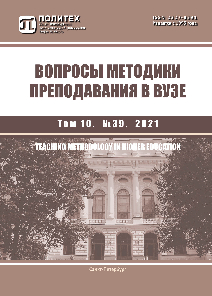Foreign language as a tool for engineering students’ cognitive development
Engineering has always been challenging, but because of numerous operational options, big amount of data processed, and the numerous links between the technology and society, it is getting even more complex today. Thus, it's crucial for engineers to acquire aspects of reflective practice. The author believes that the following four major issues prevent today’s engineering students from obtaining necessary skills and attributes. These include information overload; «do as I do»-based teaching strategies, pattern-based and stereotypical learning activities; low levels of professional writing and oral communication among students; and low emotional intelligence and volitional personality traits among engineering students. A foreign language, as a discipline at technical university, is rarely seen as a way to overcome these difficulties. Foreign language teachers emphasize teaching communication within the basic types and registers of language, but they often give little attention to the «engineering register» of language, or the content of speech. On the other hand, engineering students often view learning a foreign language as a pointless waste of time because, firstly, they don't see any personal advantage and, secondly, they don't believe they can become good at languages. As a result of poor motivation, the second reason comes after the first. But given the strong relationships and inseparability of thought and speech, communication and cognitive processes, the author believes that learning a foreign language has enormous potential for personal development. This article suggests certain elements of pedagogy, which can promote engineering students’ cognitive development in foreign language classes.



